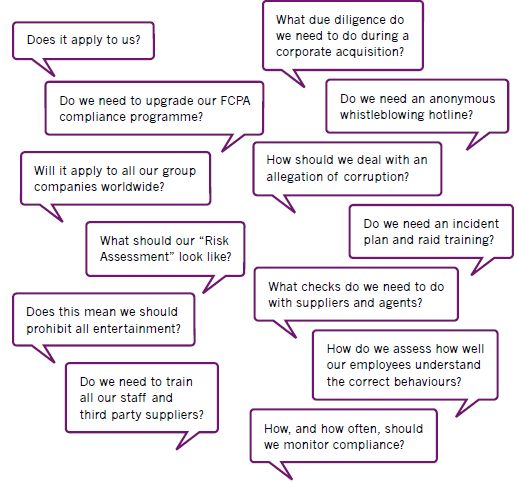The UK Bribery Act came into force on 1 July 2011. It sets a new gold standard in anti-corruption legislation and has broad jurisdictional reach. It can apply even where no UK persons are involved, and where the act in question takes place outside the UK.
It is also more extensive than the US Foreign and Corrupt Practices Act (FCPA) in that:
- it outlaws commercial bribery as well as the bribery of foreign public officials;
- no corrupt intent is required for an offence of bribing a foreign official;
- it applies to the receipt and solicitation of bribes, as well as to the giving, offering and promising of bribes;
- it applies to domestic acts of bribery as well as bribery overseas;
- it outlaws facilitation payments;
- it creates a new corporate offence of failing to prevent bribery; and
- organisations can be held liable for actions of third parties acting on their behalf – whether or not they were aware of any misconduct.
The corporate offence exposes companies and partnerships to criminal liability. There is only one possible defence—to show that the organisation has "adequate procedures" in place.
How do you protect your organisation?
Do you need help answering any of the key questions around the Bribery Act?

Dechert's leading corporate crime and compliance team has advised many clients on the creation and implementation of their procedures and has addressed all of the above questions, and many others. Unlike most other law firms in the UK, our team has many years of experience defending companies that have been the subject of criminal investigation by law enforcement agencies around the world. We have seen firsthand how enforcement is carried out. This informs our approach to compliance. It has also helped us to develop our employee compliance assessment services.
The content of this article is intended to provide a general guide to the subject matter. Specialist advice should be sought about your specific circumstances.

